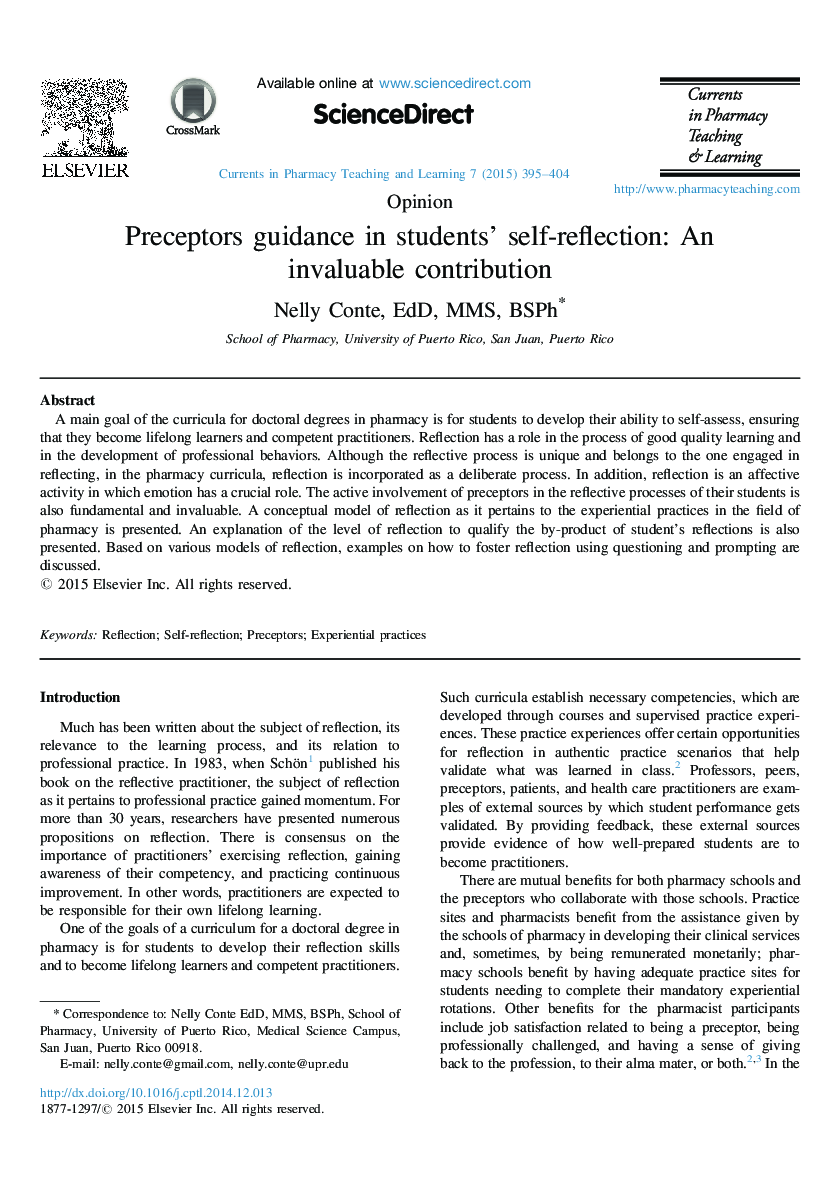| Article ID | Journal | Published Year | Pages | File Type |
|---|---|---|---|---|
| 353089 | Currents in Pharmacy Teaching and Learning | 2015 | 10 Pages |
A main goal of the curricula for doctoral degrees in pharmacy is for students to develop their ability to self-assess, ensuring that they become lifelong learners and competent practitioners. Reflection has a role in the process of good quality learning and in the development of professional behaviors. Although the reflective process is unique and belongs to the one engaged in reflecting, in the pharmacy curricula, reflection is incorporated as a deliberate process. In addition, reflection is an affective activity in which emotion has a crucial role. The active involvement of preceptors in the reflective processes of their students is also fundamental and invaluable. A conceptual model of reflection as it pertains to the experiential practices in the field of pharmacy is presented. An explanation of the level of reflection to qualify the by-product of student’s reflections is also presented. Based on various models of reflection, examples on how to foster reflection using questioning and prompting are discussed.
